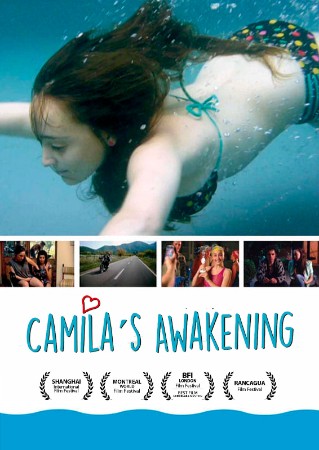
Camila’s Awakening (El Despertar de Camila) 2018
Distributed by Pragda, 302 Bedford Ave., #136, Brooklyn, NY 11249
Produced by
Directed by Rosario Jiménez Gili
Streaming, 88 mins
College - General Adult
Adolescents; Brain Injuries; Family; Rehabilitation
Date Entered: 07/01/2020
Reviewed by Linda Frederiksen, Washington State University, Vancouver, WA (retired)According to recent World Health Organization statistics, more than 5 million people annually experience a permanent disability following a cerebrovascular accident (CVA). While the majority are older adults, young people increasingly suffer outcomes that may include partial paralysis, speech and communication disorders, and cognitive impairment. As a result, an acquired post-stroke disability has a significant and often long-term impact on both individual survivors and their families.
For 17-year old Camila, a privileged over-achiever and self-described ‘bitch,’ a sudden CVA leaves her in a vegetative state for several weeks. She emerges physically and emotionally damaged. Reluctantly, she begins a course of rehabilitation that will eventually allow her to move through the stages of grief to accept her disability and find a life as a functioning young adult. Based on a true story, the often lightly humorous film is both sympathetic and realistic in its depiction of Camila’s struggle to be seen by herself, her family, and others as more than her disability.
The largely Chilean cast is led by television actress Francisca Walker with support from Dayana Amigo and Koke Santa Ana as Camila’s erstwhile caregivers. Notably, the original score includes music by Santa Ana as well as a cumbia bar scene featuring popular Chilean performers Adrian y los dados negros. A study guide is available on the Pragda website. Recommended for film studies, disabilities studies, and growth and development courses.